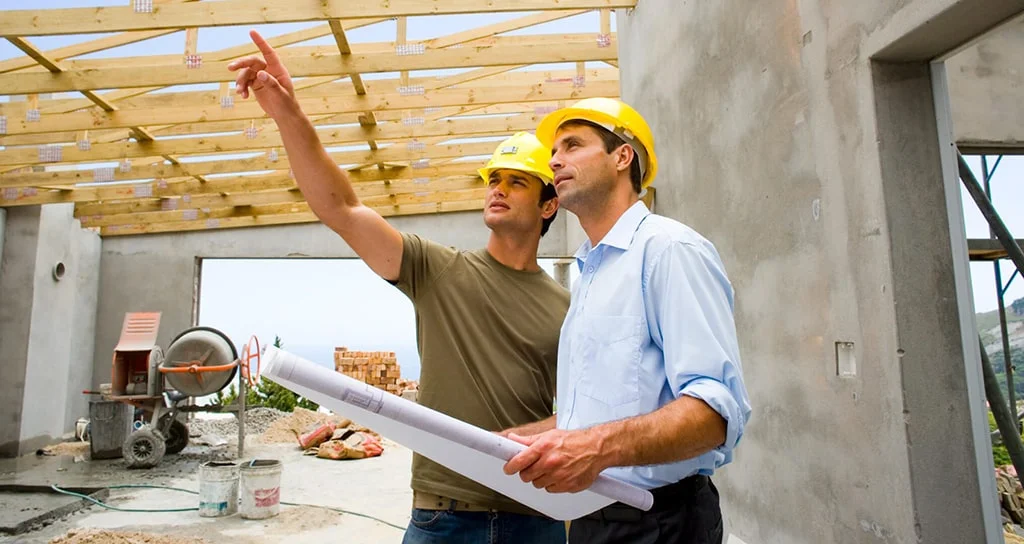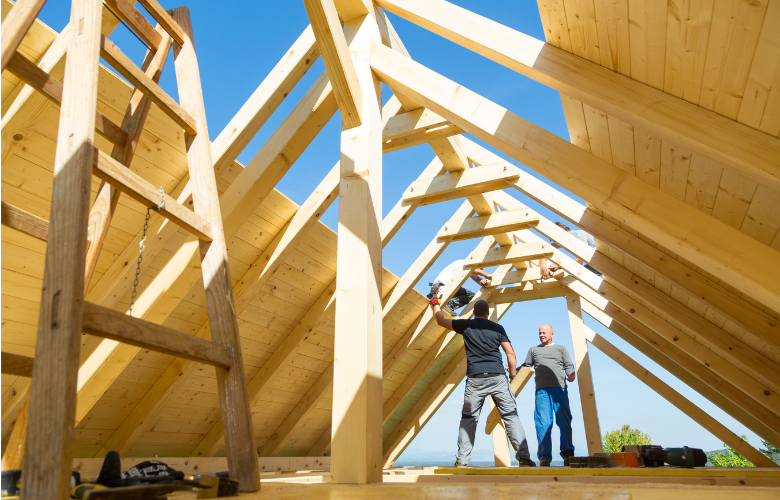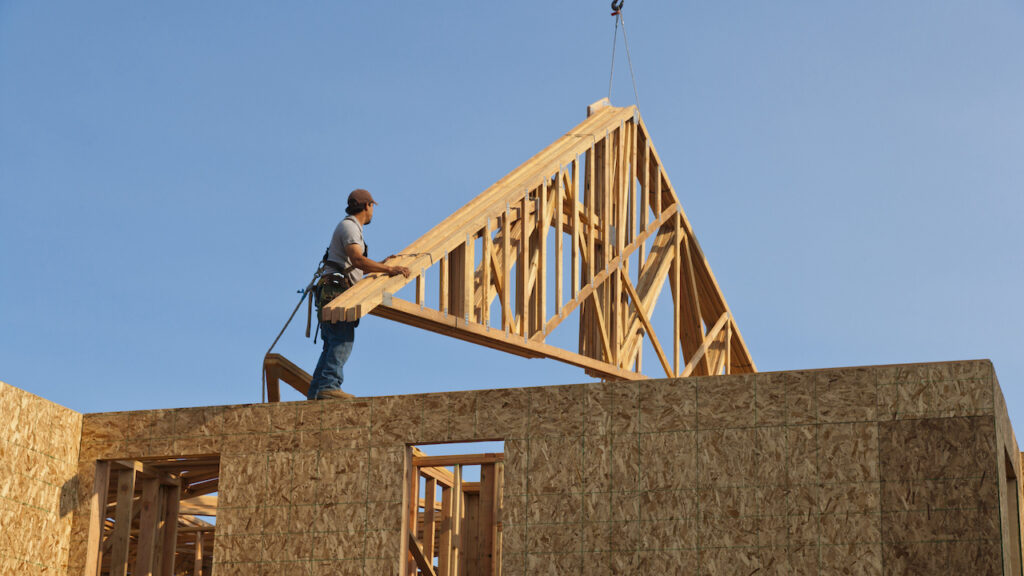
When building a custom new home, many homeowners find themselves overwhelmed by the process and uncertain about potential builders in order to create their dream home. To avoid surprises and ensure overall satisfaction, it’s crucial to ask the right questions up front.
Factors such as worker’s compensation, layout changes, and the builder’s current workload can significantly impact the overall cost and average length of your project, which are important questions to consider. By gaining a better understanding of these important aspects, you’ll be prepared to make informed decisions and choose the best builder for your next project.
Below, we’ve outlined the most asked questions about builders along with honest answers to help you plan with confidence. Clear answers from builders are crucial to ensure transparency and a smoother overall experience.
Importance of Hiring the Right Builder for Your Project
Choosing the right custom home builders is one of the most critical decisions you’ll make when planning your project. The builder you select will have a direct impact on the quality of the work, the timeline, and your overall experience throughout the process.
A reputable and experienced builder ensures that your project adheres to safety standards, stays within budgets, and meets your specific requirements, including energy efficiency. On the other hand, selecting the wrong builder can lead to costly delays, subpar craftsmanship, and unnecessary stress.
Energy-efficient features can save money in the long run by reducing utility bills and minimizing the carbon footprint.
By taking the time to carefully vet potential builders and asking the right questions upfront, you can ensure the smooth execution of your project and achieve results that exceed your expectations.
How Do I Choose the Right Builder for My Project?

Choosing the right builder is essential for your project’s success. Thorough research and careful evaluation can help you find a professional who fits your needs. Here are some tips to guide your decision:
It’s important to feel comfortable asking questions and expressing concerns to foster a collaborative relationship with your builder.
A good builder should have a solid reputation, relevant experience, and a portfolio of completed projects. They should also be transparent about costs and timelines. Being involved and informed throughout the journey is crucial to ensure a successful outcome.
Researching and Evaluating Builders
Start by creating a list of prospective builders from referrals, online reviews, or local directories. It is important to compare other builders to understand the unique attributes and benefits of each. Focus on their expertise to ensure they have experience with similar projects.
Schedule consultations to discuss your project and assess how well they understand your vision. Comparing bids can help you gauge market rates and spot any anomalies. Understanding the building process is crucial for effective budget management and communication with your builder.
Reviewing Credentials, Experience, and References
Check the builder’s credentials, such as licenses, insurance, and certifications. Look at their portfolio to evaluate their past work. Ask for references and contact previous clients about their experience. Obtaining references from past clients is crucial to assess a builder’s quality and professionalism.
If possible, visit completed projects to assess the quality of their work. Understanding how homes are built is essential to ensure they meet both building codes and the expectations of the buyers.
Red Flags to Avoid
Watch out for builders without proper licenses or insurance, those unwilling to provide references, or those pushing for quick decisions regarding completion dates. Understanding the payment schedule is crucial to effectively manage one’s budget. Extremely low bids may signal poor quality or hidden costs. Poor communication, unprofessional behavior, or unclear contracts are also warning signs.
These steps, along with the questions to ask, will help you choose a builder who meets your expectations and ensures a smooth construction process without unexpected additional costs.
How Much Does Hiring a Builder Cost?
The cost of hiring a builder can vary widely depending on factors such as the scope of the project, the builder’s experience, and your location, which can also influence your future utility bills. On average, builders charge either a fixed price for the entire job or an hourly rate.
Hourly rates typically range from $50 to $150, though this can increase for highly skilled professionals or in high-demand areas, especially if they offer energy saving features. For larger projects like new home construction or major renovations, builders may charge a percentage of the total cost, often between 10% and 20%.
Understanding which features are included in the base price and which are considered upgrades is crucial to avoid unexpected expenses.
It’s essential to obtain detailed quotes from multiple builders, including a breakdown of materials, labor, and any additional expenses, including insurance coverage and any potential additional cost to ensure transparency and help you budget effectively. Keep in mind that the cheapest option is not always the best; focus on a balance of quality, reliability, and cost.
How Long Does a Building Project Take?
The length of time required for a building project can vary greatly depending on the scope, complexity, and size of the work. Small renovations, such as kitchen or bathroom remodels, might take a few weeks to a couple of months to complete. Larger-scale projects, like custom home construction or significant additions, can take anywhere from six months to over a year.
Understanding the timeline for completing the home is essential to prevent potential delays or surprises.
Factors such as weather conditions, availability of materials, contractor schedules, and unexpected obstacles can all impact the timeline. It is crucial to work closely with your builder to establish a realistic schedule and to maintain clear communication throughout the process to address any delays or changes as they arise. Establishing a move-in date and understanding the factors that can influence the scheduled start and completion dates are also important to set clear expectations regarding the project timeline.
How Do Builders Handle Project Changes or Adjustments?

Experienced builders understand that project changes or adjustments are often an inevitable part of construction. Whether due to unforeseen site conditions, evolving client preferences, or supply chain issues, flexibility is key.
It is important to understand the builder’s approach to upgrades and the potential costs associated with various upgrades.
A reputable builder will have a clear process in place for managing changes, which typically includes open communication, documentation, and transparency regarding associated costs or timeline impacts. Change orders are commonly used to formalize modifications, ensuring both parties agree on the specifics before proceeding.
By maintaining a proactive approach and fostering collaboration with clients, builders can effectively address adjustments while keeping the project on track and avoiding any unexpected additional cost.
What Warranties or Guarantees Do Builders Provide?
Builders typically offer warranties or guarantees to assure clients of the quality and durability of their work. These warranties often cover different aspects of the project, such as structural integrity, materials, and workmanship, for a specified period.
Understanding the builder’s approach to energy efficiency is crucial, as it can significantly impact long-term costs.
For example, a structural warranty may protect against defects in foundations or load-bearing elements for 5 to 10 years, while shorter-term warranties cover elements like plumbing, electrical systems, or finishes. Prioritizing energy-efficient features not only minimizes utility bills but also significantly reduces the carbon footprint, leading to substantial financial benefits and a positive environmental impact in the long run.
How Do Builders Ensure Quality Control?

Builders implement a variety of practices to ensure quality control throughout the construction process, while also maintaining a good relationship with the community. Firstly, they adhere to strict building codes and industry standards, which provide a framework for safety and structural integrity.
Understanding how homes are built is crucial to ensure they meet both building codes and the expectations of the buyers.
Additionally, many builders employ experienced project managers and site supervisors who oversee daily operations, ensuring that work is performed correctly and aligns with approved plans. Regular inspections at key stages of construction, often conducted by third-party inspectors, help identify and rectify any issues early on.
How Do Builders Handle Permits and Regulations?
Builders play a crucial role in navigating the complex landscape of permits and regulations to ensure that construction projects comply with local, state, and federal requirements, which are important questions to ask during the selection process.
Builders then work closely with regulatory agencies to submit detailed plans, applications, and supporting documents. Throughout the construction process, they maintain open communication with inspectors and regulators to address any compliance issues that may arise. Being involved and informed throughout the journey is crucial to ensure a successful outcome.
What Should I Watch Out for When Signing a Contract?
When signing a contract, it is essential to carefully review all terms and conditions to avoid potential misunderstandings or disputes. Pay close attention to payment schedules, timelines, and the scope of work to ensure they align with your expectations.
Understanding the payment schedule is crucial to effectively manage one’s budget, as it details how and when payments are made, including deposits and milestone payments.
If there are any unclear or ambiguous clauses, seek clarification or consult with a legal professional before signing. Taking the time to meticulously review the contract can protect your interests and provide a solid foundation for a successful project.
Post-Construction Process and Support
The post-construction process is just as important as the construction process itself. A reputable builder will provide support and guidance throughout the post-construction process, from final inspections to warranty claims. Ask about their post-construction process and what kind of support you can expect.
What is their warranty policy, and what kind of maintenance and upkeep requirements will you need to consider? A builder who prioritizes post-construction support will be able to provide you with peace of mind and ensure that your home is completed to the highest standards.
Once the construction is complete, the post-construction process begins. This phase involves final inspections to ensure that everything is in perfect working order and meets the agreed-upon specifications. A reputable builder will address any issues or touch-ups needed before handing over the keys.
By choosing a builder who prioritizes post-construction support, you can ensure that your home is completed to the highest standards and that you have the necessary support for any future needs.
Conclusion
Entering into a contractual agreement demands careful attention to detail and thorough preparation. By reviewing all terms, documenting verbal agreements, and addressing ambiguities, you can ensure the contract reflects everyone’s expectations and safeguards your interests. Taking these steps not only minimizes risks but also sets the stage for a successful and mutually beneficial partnership. Understanding the building process is crucial for effective budget management and communication with your builder.
